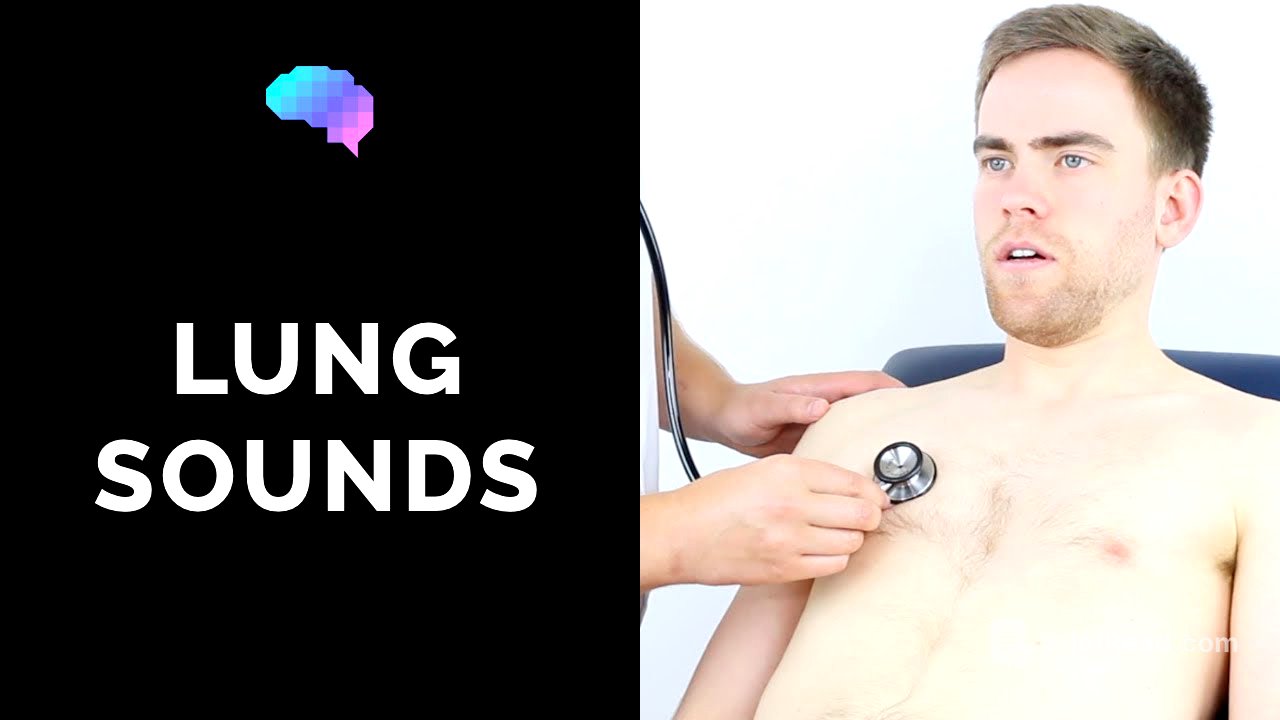TLDR;
This video by Geeky Medics provides a concise guide to identifying various lung sounds, differentiating between normal breathing, squeaking, wheezing, rough crackles, and fine crackles. Each sound is associated with specific respiratory conditions, such as asthma, pneumonia, pulmonary edema, and pulmonary fibrosis, aiding in diagnosis.
- Normal breathing sounds indicate a healthy respiratory system.
- Squeaking during inhalation suggests issues in the larynx or bronchi.
- Wheezing is commonly linked to respiratory diseases like asthma.
- Rough crackles may point to pneumonia or pulmonary edema.
- Fine crackles are often associated with pulmonary fibrosis.
Lung Sounds [0:06]
The video introduces the topic of lung sounds, setting the stage for differentiating between normal and abnormal respiratory sounds. It emphasizes the importance of recognizing these sounds for diagnostic purposes in respiratory conditions.
Normal Breathing [0:16]
Normal breathing sounds are presented as the baseline for comparison. Recognizing these sounds helps in identifying deviations that may indicate underlying respiratory issues. The absence of any adventitious sounds signifies a healthy respiratory system.
Squeaking [0:25]
Squeaking sounds heard during inhalation suggest a disturbance in the airflow within the larynx or bronchi. This sound indicates a potential obstruction or narrowing in the upper respiratory passages, warranting further investigation to determine the cause.
Wheezing [0:31]
Wheezing is typically experienced by individuals with respiratory diseases, with asthma being the most common cause of recurrent wheezing. The sound is indicative of narrowed airways, making it difficult for air to pass through, and is a key sign in diagnosing and managing asthma attacks.
Rough Crackles [0:38]
Rough crackles are indicative of conditions such as pneumonia or pulmonary edema. These sounds suggest fluid accumulation in the lungs, disrupting normal airflow and gas exchange. Identifying rough crackles is crucial for prompt diagnosis and treatment of these potentially serious conditions.
Fine Crackles [0:45]
Fine crackles are often caused by pulmonary fibrosis, a condition characterized by scarring and thickening of lung tissue. These crackles reflect the stiffening of the lungs and impaired ability to expand fully during inhalation. Recognizing fine crackles aids in the diagnosis and management of pulmonary fibrosis.




![This Crypto Crash Will NOT End Here! [Here's Why]](https://wm-img.halpindev.com/p-briefread_c-10_b-10/urlb/aHR0cDovL2ltZy55b3V0dWJlLmNvbS92aS9EbUdyNzlUemp4TS9ocWRlZmF1bHQuanBn.jpg)




